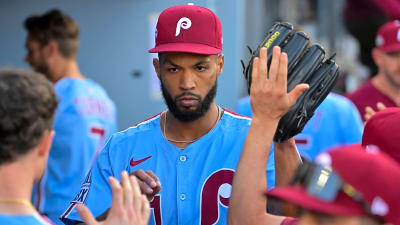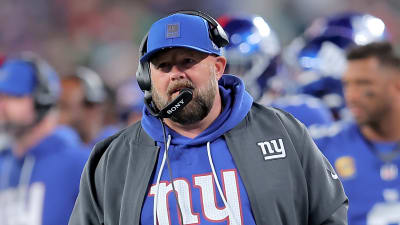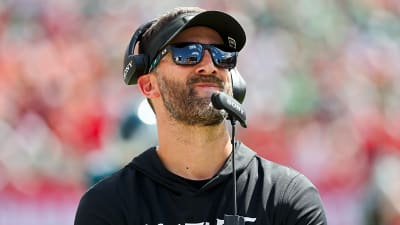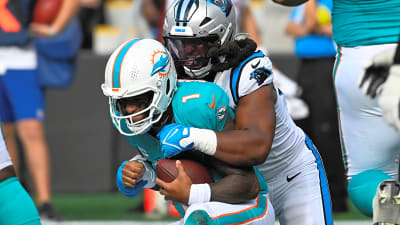
Patrick Mouratoglou is widely recognised as one of the greatest and most influential coaches tennis has ever witnessed, coaching some of the greatest players in the world.
In an interview with Business of Sport, he touched on his anxiety struggles in his childhood and how he overcame them, earning the respect of Serena Williams and her dad, and his biggest regret while coaching Naomi Osaka.
Early life struggles
"My life was difficult when I was young because I was extremely shy — shy to a point that’s difficult to imagine. I was talking to nobody. I was scared of people, scared that people would talk to me. I avoided eye contact, because when you look at someone, there’s a good chance they’ll say something. I was very bad at school — I didn’t understand what I was supposed to do, so I was always last in class. That, combined with being so shy, created a lot of anxiety. I couldn’t sleep at night. I had panic attacks every night. I was sick, I was throwing up. My childhood was very difficult."
His life changed when he was introduced to tennis, which changed his life. "First of all, I had a meeting with tennis when I was four, and I developed a very strong, passionate relationship with the sport. Tennis gave me a place where I could express myself, a place where I felt good at something. Without that, I don’t know where I’d be today. On the court, I received compliments and felt considered. I was less shy there because I felt strong, and I could talk to people about tennis. It gave me a little social life."
"When I turned 15, I had no doubt in my mind I would become a pro. That was my destiny. I asked my parents to put me somewhere I could focus less on school and more on tennis — practise properly, travel for tournaments. They said, 'No chance. Tennis is too risky. You’re going to study.' I was terrible at school and got kicked out of three different schools. So tennis stopped for me at 15, and that was a turning point. I lost my goal, felt even more lost, and realised my life was going to be a disaster if I didn’t change. I didn’t want to live like that."
He would then start going to a psychologist, trying to get his life together. "I realised my problems came a lot from self-esteem. I had zero. I thought I was ugly, uninteresting, dumb because I was bad at school. I loved that quote: 'Better to keep your mouth shut and appear stupid than to open it and remove all doubt.' That’s exactly how I felt. So I knew I had to build my self-esteem, because everything comes from there."
Asserting his dominance with Williams
Mouratoglou is most famous for coaching 23-time Grand Slam winner Williams, guiding her between 2012 up until 2022. He commented on how he got the respect not just from Williams, but also from her father.
"Naturally, your instinct is to protect yourself. Why take risks when you already have a great job?" Mouratoglou said. "Imagine — I’m coaching Serena Williams. She already had 13 Grand Slams when we started. She’d been world number one. Any coach would dream of that position. Why would I risk it? But she provoked me. Her father provoked me. And I thought: if I let them step on me, I won’t be respected. I won’t succeed. If it has to stop, it has to stop — but I won’t let people treat me in a way I don’t accept. They weren’t trying to harm me; they were testing me. Testing my character. I didn’t realise that at the time, but it was true.
"At the very start, I had to confront her. First practice at Wimbledon, I confronted her. Then her father confronted me in front of everyone, shouting at me. I hit back hard — in a very correct way — and said, 'If you don’t respect me, I won’t respect you. You want me to respect you? Respect me first. And you’re shouting at me about why Serena’s playing badly. I’ve been coaching her for one week. You’ve coached her for 30 years. Maybe I should ask you.'
"He didn’t know what to answer. People thought I was crazy, but I gained his respect — and then Serena’s respect. Six months later she told me: 'When you did that, you got all my respect, because 99% of people wouldn’t dare.' That’s why I say: if you’re too scared to lose your job, you won’t do what’s necessary to make huge changes. Coaching takes courage."
One regret with Osaka
The Frenchman had stints with Simona Halep and Holger Rune, before ending up with four-time Grand Slam champion Osaka in 2024. The relationship did not last too long, with the pair splitting after 10 months. The Japanese star has since reached a Masters 1000 final, and the US Open semi-final, with her former coach regretting on what he said to her.
"With Naomi Osaka, it wasn’t about not saying something — I always say what I think — it was about not finding the right solution in time," he said. "She started strong but kept getting injured. We fixed that. Then her practice level was amazing, but she didn’t compete well. I told her, 'You can lose, but you cannot lose this way — you have to fight.'
"She felt I was disappointed in her. That put extra pressure. Looking back, I should have made her feel that I cared only about her development, not her results. With Simona Halep later, I realised it — she told me openly she felt the weight of Serena’s legacy, and we worked through it. I didn’t manage to do that with Naomi in time."
Future coaching ambitions
He also touched on Carlos Alcaraz, who has taken the tennis world by storm with a string of incredible performances and titles, recently winning his second US Open title. Mouratoglou reminisced on his first sighting of the young Spaniard, seeing a resemblance to Djokovic.
"I saw him at 18 in Madrid, at an event with the mayor. He walked up, put his arm on the mayor’s shoulder, spoke with total confidence. It was like he was the mayor, not the other way around. He reminded me of Djokovic at 18 or 19. He takes the space. You see it now in finals — he owns the stage."
When asked if he would want to coach a player like Alcaraz, he said: "Of course. It’s like asking a football coach if he’d prefer to coach Real Madrid or a second-division team. You want to win big trophies. You can improve every player, help them reach their potential — but not everyone can be Serena. There’s only one Serena. So yes, when you get the chance, you want to work with players who can be different, who can win the biggest tournaments."
More must-reads:
- Former NBA champion calls for LeBron James to retire after this season
- Giants QB Jaxson Dart joins unexpected company after his first three starts
- The 'Team USA men's basketball coaches' quiz
Breaking News
Trending News
Customize Your Newsletter
 +
+
Get the latest news and rumors, customized to your favorite sports and teams. Emailed daily. Always free!








